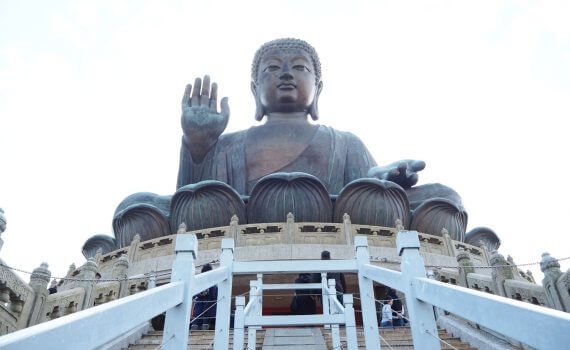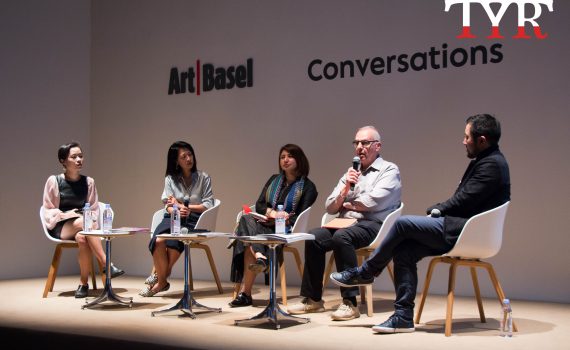By: Nadia Lam、Erin ChanEdited by: Holly Chik、Angie Chan、Michelle Ng
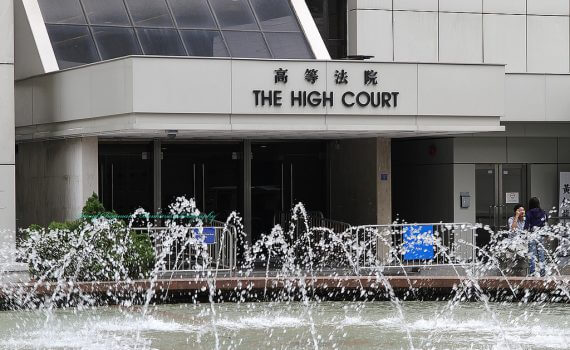
Mong Kok Riot Trial: witness admitted to be father of two policemen
- 2018-03-29
- Society
- The Young Reporter
- By: Wallis WangEdited by: Angie Chan、Michael Shum
- 2018-03-29
The witness who reported the fifth defendant, Lam Lun-hing, in the Mong Kok riot in 2016, Yip Chi-shing, admitted that both of his sons are serving in the police force. He also said his elder son garrisoned in Mong Kok but claimed to be not sure whether his sons participated in the suppression. The defence barrister Jon Wong Kwok-ho suggested that Yip once liked a Facebook page called "Salute to Hong Kong Police". Yip admitted that but denied having registered in that group. Yip claimed that he was harassed by Lam in August 2015 during his patrol in a comic fair. He recognised him in a news video of the Mong Kok riot in February 2016 and then called the Police. Although it was hard to see people's faces clearly in the videos, Yip insisted that he could correctly recognise Lam through the height and profile of him. "It's impossible for me to recognise the wrong person," Yip said. The defence showed various screenshots from videos which focused on the man whom Yip believed to be Lam and asked Yip to describe them. In Yip's description, the colour of the jackets the man wore changes with the photos, but Yip explained that it’s only because of the difference of light condition. "The jacket was not important, I recognised him because of his height," Yip stated repeatedly. The defence pointed out that the information which the witness provided in court, such as the suspect's body shape and age, was different from his testimony. Yip explained that he might not have had the correct concept of the body size. In Yip's second testimony on April 8, 2016, Yip provided detailed information on Lam’s appearance such as hairstyle and deep eye socket. Yip also agreed that he went through plenty of videos and …
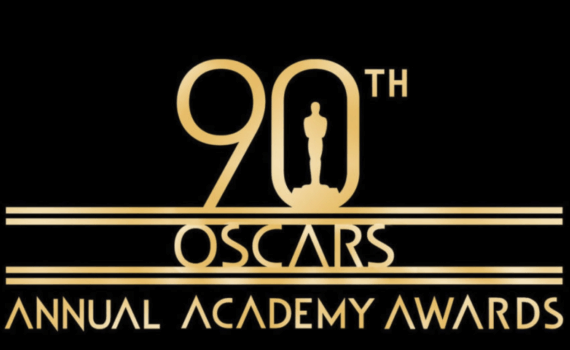
Oscars 2018: TYR's Picks and what we expect from the ceremony
- 2018-03-05
- Culture & Leisure
- The Young Reporter
- By: Angie Chan、Ezra CheungEdited by: Holly Chik
- 2018-03-05
The 90th Academy Awards are just a few hours away. As the people of Hollywood get prepared for their big night. Much like the previous years, there are many speculations as to what people will wear, what the host, Jimmy Kimmel, will be saying, what topics would be mentioned during acceptance speeches, and most of all, who will be the winners. While we will have to wait until 5 pm PST on Sunday, March 4 (9 am HKT on Monday, March 5), editors Angie Chan and Ezra Cheung sat down with The Young Reporter's Editor-in-Chief Holly Chik and discussed the upcoming Oscars, before their live-streams on Facebook during the event. A: Angie Chan E: Ezra Cheung H: Holly Chik H: What makes the 90th Academy Awards so significant? E: I think it's fairly important because the ceremony is held amidst the #MeToo and #TimesUp movements, electrifying the whole American film industry. I am very curious about what one of the nominees, Meryl Streep, will say during the presentation (given she wins the Best Actress in a Leading Role). And besides, I did go to pretty much all of the films nominated. The race is fairly competitive and I am looking forward to (the announcement of) the winners. A: Well, it's the 90th Academy Awards, the number itself makes it significant. *laughs* I think with so much happening in Hollywood, it would be hard for the celebs not to be political one way or the other, and I think how they represent their stance will be what makes this year extra significant 'cause what these important figures of the entertainment industry say will easily determine the general public's view. And I think seeing Jimmy Kimmel a second time would be quite interesting as well considering his kind of awkward …
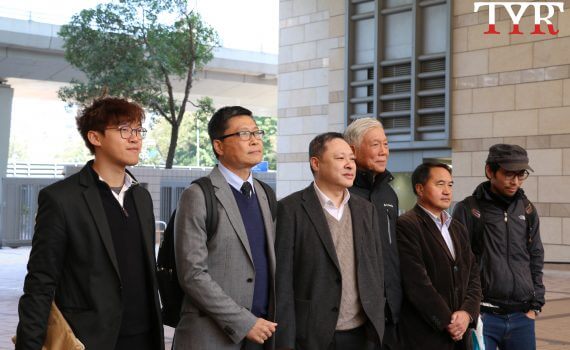
The court rejects dropping double incitement charge against Umbrella Movement defendants
- 2018-02-13
- Politics
- The Young Reporter
- By: Wallis Wang、Oasis LiEdited by: Ezra Cheung、Zinnia Lee
- 2018-02-13
The charge of inciting people to incite others to commit public nuisance against the "Occupy Central" founding trio, Benny Tai Yiu-ting, Chan Kin-man and Chu Yiu-ming, was ruled "constitutional" by the court this morning. Judge Johnny Chan Jong-herng believed that the charge "exists in the common law", saying that there is nothing "uncertain" and "unconstitutional" of the charge. The trio, Tai, Chan and Chu, was accused of three charges altogether: (1) conspiracy to commit public nuisance, (2) incitement to commit public nuisance and (3) inciting people to incite others to commit public nuisance. Defence Senior Counsel Gerard McCoy had argued that the third charge, inciting people to incite others to commit public nuisance, was neither justiciable nor constitutional in previous trials, and thus proposing a motion to rescind this charge. The judge was not convinced though, saying that inciting people to incite others is different from inciting to commit public nuisance and "cannot be treated in one single charge". Chan Kin-man, one of the Occupy Central founders, expressed his disappointment to the court after the hearing. "We are disappointed that the court accepts the incitement to incite is a lawful charge in this case," he said. "This is unprecedented." McCoy had previously argued that the prosecutor failed to provide detailed information such as the identity of involved people. But the judge stated that the prosecutor had made it clear. "Adequate and appropriate information has been given," said the judge. There had been a discussion about whether the single trial for the nine defendants could be split. The judge eventually decided to stay as a bound trial, implying that all nine defendants are to be tried and testified together even though Raphael Wong Ho-ming and Lee Wing-tat were accused of committing the crimes in places different from the rest. The judge also compared the incitement to a …
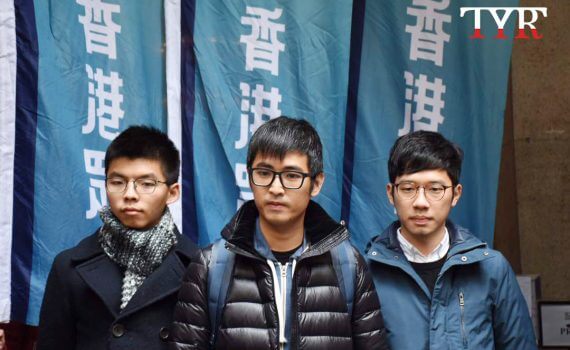
Democracy activists Joshua Wong, Alex Chow and Nathan Law set free by Court of Final Appeal
- 2018-02-06
- Politics
- The Young Reporter
- By: Katherine LiEdited by: Angie Chan、Michelle Ng
- 2018-02-06
Alex Chow, Joshua Wong, and Nathan Law walk free as Court of Final Appeal accepts their appeal this afternoon. The trio was initially arrested for breaking into the Central Government Offices and for "civil disobedience" in September 2014, which triggered the Occupy Central. However, Wong said that even though they regained their freedom, this is by no means a victory for democracy. "This set the precedent of demonstrations being viewed as violent," Wong said, "which puts all future attempts of public assembly at risk. Those who attend may receive months or years of jail sentence." Furthermore, Chow said that the lines of what is considered as violent demonstration has been blurred through this case, which is unhelpful to Hong Kong's fight for democracy. He called the court's ruling "sugar coated". The trio raised concerns that with the recent disqualification of Agnes Chow, Hong Kong is going through a very tough time. Alex Chow ultimately said that it is obvious that people in the government are under pressure to behave a certain way. The trio is free for now. But Joshua Wong faces another appeal for "contempt of court" which will soon decide whether he remains free or goes back to jail.
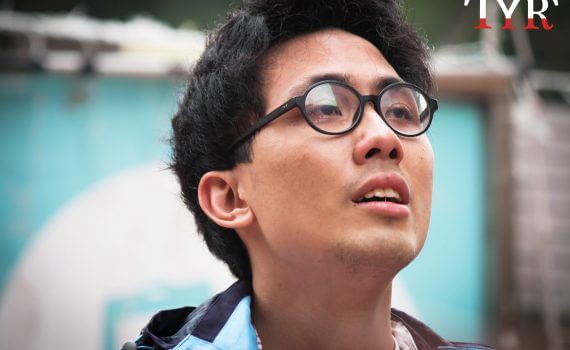
Hundreds protest against suspension of Baptist University student duo
- 2018-01-26
- Society
- The Young Reporter
- By: Elly Wu、Raphael Blet、Yoyo Chow、Katherine Li、Rob McGainEdited by: Angie Chan、Ezra Cheung、Michael Shum、Michelle Ng、Wing Li
- 2018-01-26
More than 200 people participated in a protest at Hong Kong Baptist University at 1.30 pm following the suspension of two students, according to the University's Students' Union. After being accused of threatening the staff and using abusive language during an eight-hour stand-off at the University's Language Centre, president of Hong Kong Baptist University Students' Union, Lau Tsz-kei, and a Chinese medicine student, Andrew Chan Lok-hang, were suspended pending disciplinary procedures. The University's decision to suspend the pair prompted mixed reactions with some praising the University's decision and others criticising the University for not awaiting the verdict of the disciplinary committee. A group of counter-protesters who were seen brandishing banners labelling the student union "a gang" and accused some professors of supporting the students. "We are proud of being Chinese citizens and right now, it's a Putonghua-speaking world," wrote a banner. Both parties could be seen hurling vulgarities at each other, but they were quickly separated by the security personnel. John Tse Wing-ling, former Legislative Councillor and Associate Professor of City University's Department of Applied Sciences, marched with the HKBU students in support for elimination to the compulsory Putonghua policy. "If Putonghua is really going to be a fixed standard, then this standard should also apply to all university staff members, including professors," he said, referring to the controversial requirement. Tse did not believe that a certain language should be a parameter of whether students could graduate. "If you judge everyone on the same standard, which is their Putonghua proficiency, then the Chief Executive of Macau won't even get his job," said Tse. The former lawmaker criticised the university for making the suspension of involved students public. "It's the first time in 30 years of teaching that I see a Vice-Chancellor announcing student suspension in front of the press," …


